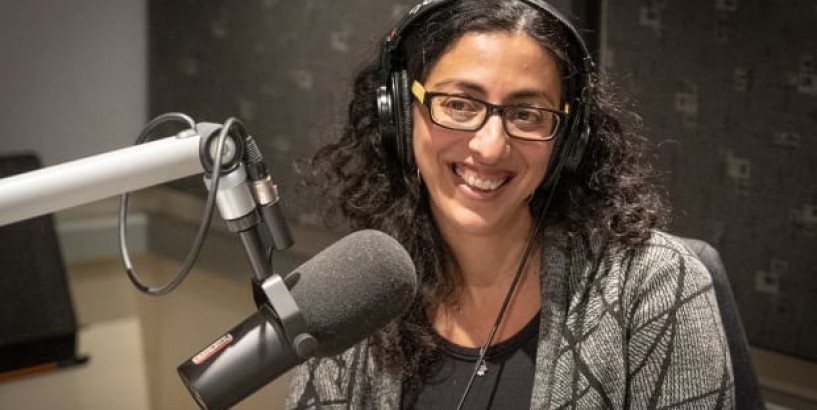Ayelet Tsabari is a Yemini Jew of Mizrahi descent who grew up outside of Tel Aviv, but left Israel after completing her mandatory army service.
In the years since, she has travelled the world, visiting India, Asia, the U.S. and Canada. Now Tsabari — who would jokingly refer to her bank account her "wandering Jew fund" — has penned a new book about a life in motion. She spoke with Shelagh Rogers about The Art of Leaving , a coming-of-age memoir about loss, leaving Israel and the idea of home.
The safety — and the cost — of leaving "It somehow felt safer to me to be the one in charge — who's doing the leaving. When you're in your twenties you do a lot of things without much thought. For a long time, I didn't really know what I was doing. Then, when I realized that I had a habit of not staying in one place, I sort of fell in love with that. I looked at it romantically. I liked that image. I was pleased to be different. It took me a long time to realize that there was such a cost to that, as well. Leaving became the thing that I do. It somehow gave me reassurance — like, 'I can always go. I can always leave.' Until it became the thing that I did best."
19 works of Canadian nonfiction to check out in spring 2019 A lifetime of leaving... and being left "As a child, it felt like everyone was leaving. It wasn't just my father [who died] or my mother who was physically there, but mentally not so much because she was grieving and depressed while raising six children. It was also living in Israel, which is a country that is haunted by death. One's sense of home in Israel is not that safe. Even though we have a country, it's still a place with shifting boundaries, with shifting borders, a place that is constantly being contested. All that, I think, contributed to me feeling that my sense of home was fractured."
Calling all poets! The CBC Poetry Prize is now open for submissions
The legacy of a father who left too soon "I was a daddy's girl. That was very clear early on. Thinking about it later, I think there was something about my spirit that reminded him of my mom — the feistiness. I also shared the love of words and the love of writing with him and the love of reading, too. He put a shoebox on my desk and wrote masterpieces on it and filled it up with books that he thought I should read and then we would talk about them. There was a lot of stuff I learned about him later. The acts of kindness that he had done for people in the community who were poor and couldn't pay for his services. The fact that he was blind in one eye and deaf in one ear. I knew none of that.
"To me, there was the words and there was the poetry, but when I think about him now what I think about is his love of people — [his way of] acknowledging strangers on the street, speaking with the janitors where you work, sharing a coffee with them. Just being kind, just being good. I try to take that as his legacy more than anything. More than literature. More than the words."
Searching for a sense of belonging "I come from a big family; I've lived in a house full of children. And on the one hand I chose to leave, but on the other hand I couldn't help but seek out that kind of closeness and intimacy and family wherever I went. That's something I've really needed in my life, which always made me wonder, 'Then why did you leave? You had it!'
"When I was in Vancouver, I started to miss home and I started to feel like I wanted some feeling of belonging. And I started working in an Arabic restaurant — a Lebanese restaurant in downtown Vancouver — and there I suddenly felt a very strong feeling of being home, more than I'd ever felt in Vancouver before. The language, the music, the food, the smells. Everything just screamed, 'This is it. This is home. You belong.' It's like I discovered my Arab-ness during that time. I started to research more and more, the area where we're from. I researched the food and the customs and the singing and the poetry. But what led me there was actually being away, being in Canada. I found it while I was away and I found it in an Arabic restaurant."
Ayelet Tsabari's comments have been edited and condensed.









